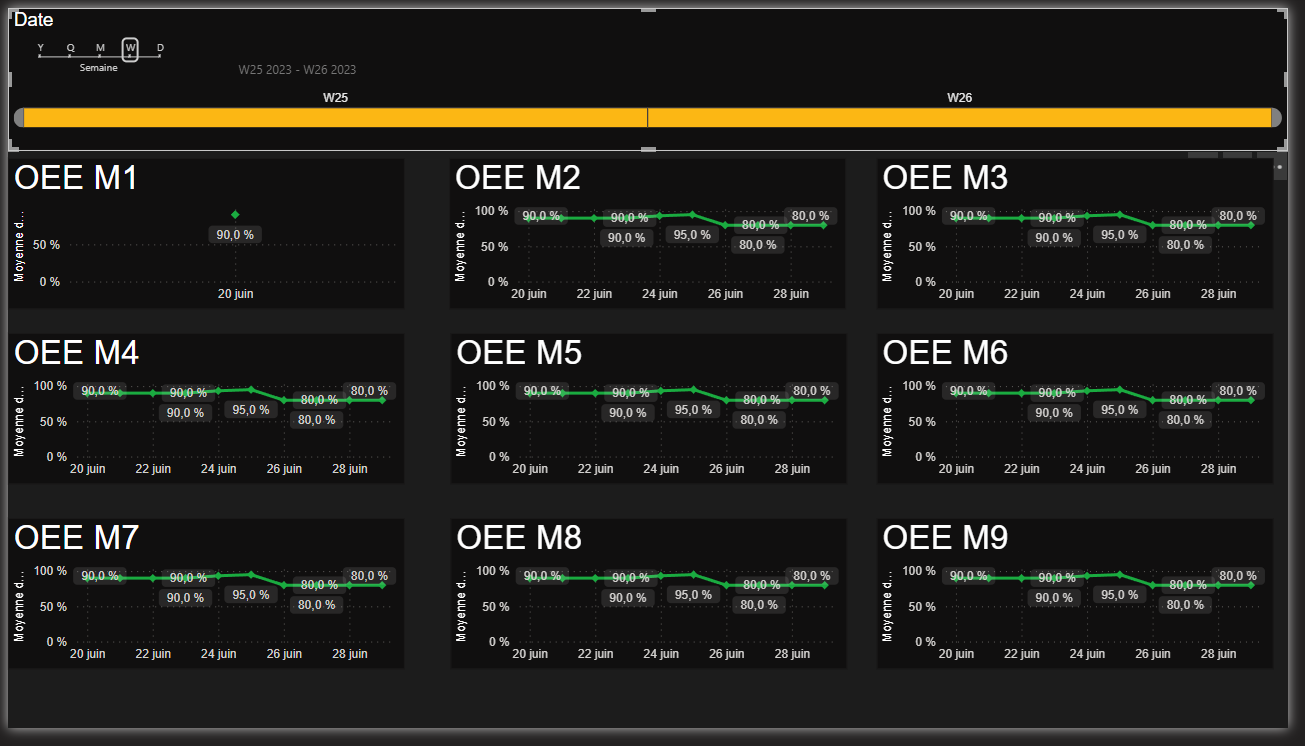
Tout savoir sur les plateformes IoT
Table des Matières
- Introduction
- Qu’est-ce qu’une plateforme IoT ?
- Quels sont les avantages de l'utilisation des plateformes IoT dans le cadre industriel ?
- Les critères pour bien choisir votre plateforme IoT
- La gestion de la connectivité grâce aux capteurs IoT
- Découvrez notre recommandation bonus
Introduction
Il existe aujourd’hui de nombreuses solutions pour les acteurs du secteur industriel qui souhaiteraient digitaliser leurs processus de production ou de gestion d’activité pour faire le grand pas dans l'industrie 4.0 : on retrouve ainsi parmi celles-ci les plateformes IoT. Quelles sont leurs caractéristiques ? Comment comprendre leur valeur ajoutée ? Découvrez dans cet article les principales informations à connaître sur cet outil numérique.
Article lié : [Consultez toutes les ressources pour démarrer votre projet Industrie 4.0]
Qu’est-ce qu’une plateforme IoT ?
Une plateforme IoT (Internet of Things) se définit comme un système centralisé qui permet de piloter un parc d’objets connectés. Elle devient ainsi une tour de contrôle, reliant entre eux différents items : objets et capteurs, réseaux, données, et logiciels ou applications (accessibles par des API, Application Programming Interface). Elle présente également une interface utilisateur, le plus souvent sur une console web, mais aussi sur tablette ou sur smartphone. Cela garantit à l’humain un accès illimité aux informations, ce qui constitue pour lui un atout précieux.
Sa première valeur ajoutée réside dans le fait qu’elle doit permettre de gérer sur une seule et même interface les capteurs et les objets connectés qui sont disséminés sur les espaces de travail, ainsi que les flux de données. L’ensemble de services et outils que déploie une plateforme IoT lui offre donc la possibilité de collecter, traiter, stocker, analyser et exploiter toutes les données générées par les objets et systèmes connectés. Elle pourra enfin rediriger celles-ci au besoin vers des applications tierces.
Dans la mesure où elle doit gérer une grande quantité de données provenant de sources multiples, une plateforme IoT est généralement hébergée dans le cloud.
Quels sont les avantages de l'utilisation des plateformes IoT dans le cadre industriel ?
Tout d’abord, opter pour une plateforme IoT réduit considérablement les coûts, puisqu’elle centralise déjà l’ensemble d’un processus de gestion de système. De nombreuses offres à la tarification intéressante existent désormais sur ce marché en pleine croissance.
Elle permet également d’optimiser les processus et les flux au sein des industries : il est possible de réagir plus rapidement grâce aux informations fournies en temps réel. Cela induit une meilleure visibilité de la chaîne de production et de sa valeur, et contribue à réduire les problèmes ou anomalies des machines.
La plateforme IoT collecte en outre les données, avant d’organiser et de sécuriser leur transmission vers le système d’information. Elle joue ainsi un rôle d’interface, mais aussi de protection et de maintenance face à la sensibilité des objets connectés : supervision de l’état de communication des items et de leur autonomie, encryptage, détection d’éventuelles cyberattaques, enregistrement automatique de nouveaux équipements… Les possibilités qu’elle recèle sont nombreuses.
Son utilisation prend donc tout son sens dans un environnement industriel, puisqu’elle se révèle précieuse pour gagner en performance opérationnelle et améliorer la qualité des produits. L’usage des données collectées par la plateforme IoT est très intéressant dans le cadre de prévisions, stratégies, réflexions ou prises de décision, par exemple sur l’exploration d’autres scénarios de production ou sur la maintenance des équipements.

Les critères pour bien choisir votre plateforme IoT
Il n’est pas toujours simple de comprendre quelle sera la plateforme IoT la plus adaptée à votre situation. Vous pouvez déjà vous baser sur la maturité du projet, ainsi que sur les différents cas d’utilisation disponibles. Il s’agira dans un deuxième temps d’étudier les possibilités qui s’offrent à vous selon les trois critères qui suivent.
De plus, il est crucial de tenir compte de la compatibilité avec les infrastructures existantes, la capacité de scalabilité pour accompagner la croissance future de votre entreprise, l'intégration avec des outils de Business Intelligence tell que Power BI et enfin, la sécurité des données pour protéger vos informations sensibles.
La gestion de la connectivité grâce aux capteurs IoT
L’efficacité d’une plateforme IoT se mesure d’abord sur sa capacité à connecter et à gérer un ensemble d’appareils hétérogènes sur une interface unique. Elle doit également prendre en compte le besoin croissant de créer sans cesse de nouvelles interactions entre les objets, sur le principe de l’interopérabilité. Il est enfin important qu’elle puisse proposer et supporter une large sélection de protocoles de communications.
La visualisation des données à l'aide d'une Plateforme IoT
Un autre point important pour une bonne plateforme IoT se traduit dans la qualité de ses interfaces de visualisation. Qu’il s’agisse de la finesse des algorithmes permettant des analyses approfondies de données, ou de la présence de tableaux de bord personnalisables, cet aspect est fondamental pour l’expérience utilisateur. La valeur de cette solution réside effectivement dans sa capacité à capter des données brutes, à les trier et à les retranscrire en informations intelligentes.
Par exemple, à l'aide d'une plateforme IoT, nous pouvons suivre le TRS (Taux de Rendement Synthétique) ou encore surveiller la performance énergétique.

La sécurité globale des Objets IoT
Une plateforme IoT doit enfin donner des garanties de sécurité et de confidentialité concernant les données, et ce à toutes les étapes du processus. Les objets et environnements, qu’ils soient matériels ou virtuels, doivent être protégés afin d’éviter tout risque de piratage et la fuite de données potentiellement sensibles.
Découvrez notre recommandation bonus
Nous vous conseillons enfin d’opter pour une plateforme IoT possédant un fort degré d’agilité. La technologie évoluant toujours plus rapidement, il est essentiel que votre solution puisse s’adapter tout en conservant sa puissance et sa valeur lors de l’utilisation. Si vous hésitez entre plusieurs plateformes IoT pour votre entreprise, vous pouvez contacter nos équipes qui pourront vous guider dans votre choix.
Découvrez la sélection digital factory des meilleures plateforme IoT pour l'industrie 4.0.



